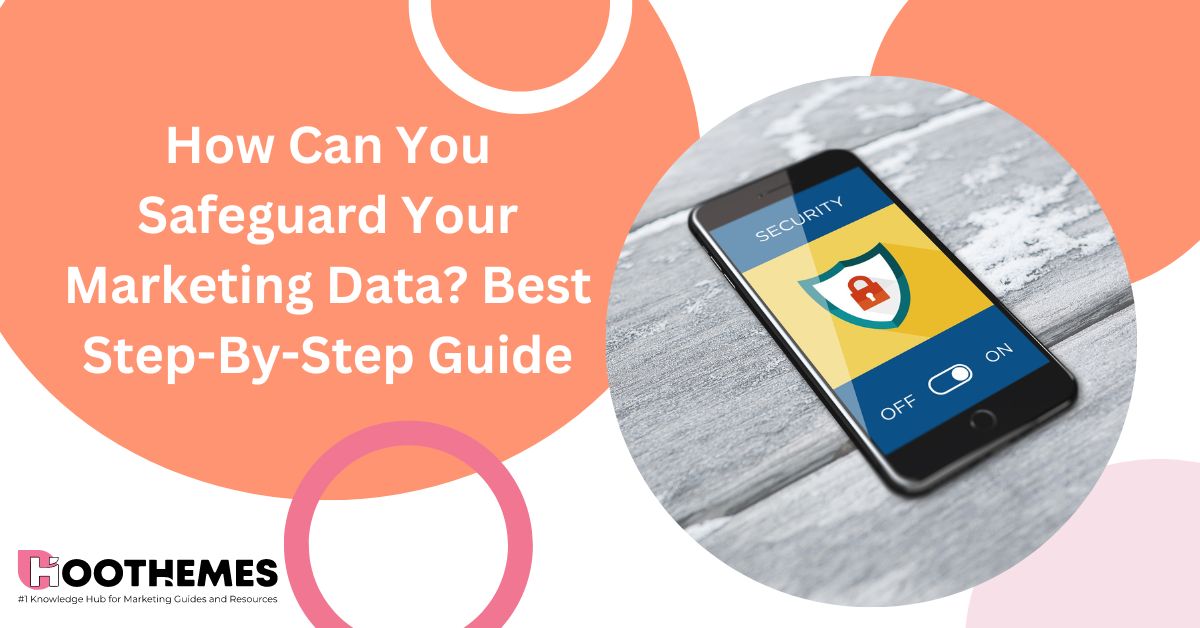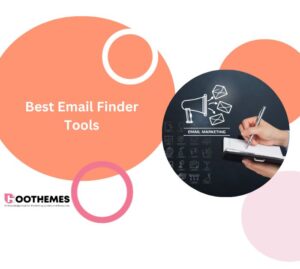Wondering why you need to safeguard your marketing data? With heavy digitalization, the amount of marketing data businesses have at their disposal has never been higher. This allows for creating sophisticated and targeted marketing campaigns, streamlining customer generation and retention.
However, it doesn’t come without a cost. Marketing data is full of sensitive information like customer names and behaviors. As such, it is a prime target for cyberattacks.
On top of that, organizations face hefty fines if they fail to protect customer data amid increasing regulations. That’s why safeguarding your marketing data is one of the most important e-commerce marketing tips.
This article will provide a step-by-step guide on how to safeguard your marketing data. We will also discuss the importance of data protection and the potential risks and vulnerabilities.
A Step-by-Step Guide to Safeguard Your Marketing Data
Now that you know why you need to safeguard your marketing data, here is a step-by-step guide to help you out!
#1 Identify and Classify Your Data
Determine what types of data you collect using business analytics tools, process, and store as part of your marketing activities. Classify the data based on its sensitivity level to prioritize security measures.
Project management tools can then help you visualize the categorized marketing data through data visualization features such as Gantt charts and Kanban boards.
Data containing any type of customer information should be classified as sensitive. This means that most of your marketing data needs to be well protected.
#2 Encrypt Your Data and Store It Securely
Data encryption prevents unauthorized access to sensitive data and helps you safeguard your marketing data. It works through a complex algorithm that transforms normalized data, such as plaintext, into unrecognizable characters. The only way to read the data is through the decoding key.
A secure storage solution will make data encryption very straightforward. Cloud storage providers also offer other security benefits. For one, you can create several backups to remove the risk of data loss, power outages, and other unforeseen events. Additionally, secure file sharing and organization are easier.
#3 Deploy Rigid Access Control
You never want everyone in your company to have access to sensitive data. In order to safeguard your marketing data, access should only be limited to the marketing department and several stakeholders. This minimizes the risk of accidental or even intentional data loss or tampering.
Access control is typically achieved with authentication mechanisms such as passwords. Essentially, your marketing data should be password protected, with only the necessary designated individuals within the company being able to access it.
#4 Use a Virtual Private Network (VPN)
Hackers commonly exploit data in transit. This is a massive problem for marketing data, as it regularly travels across the internet. That’s exactly where a VPN shines, making it a critical tool for implementing threat protection for marketing data.
A VPN creates secure connections between devices. These connections, commonly employing encryption protocols like IPsec or SSL/TLS, establish encryption keys for all devices linked to the VPN.
These keys encode and decode all transmitted data, ensuring that VPN connections maintain privacy, even when stretching across public Internet infrastructure.
#5 Train Employees on Data Protection Best Practices
Human error is a leading cause of data loss. No matter how advanced your digital tools are, it is ultimately up to your employees to protect the data they handle.
Educate your marketing team and employees about the importance of data protection and their role in safeguarding sensitive information.
Provide training on recognizing and reporting potential security threats, phishing attacks, and social engineering techniques. Foster a culture of data security and make employees accountable for their actions.
Why It’s Important to Safeguard Your Marketing Data
To deploy these best practices, organizations must remember why data protection is so important.
The first thing that comes to mind is the high probability of a cyberattack. High-profile security incidents are becoming an everyday occurrence. Organizations of all sizes are being targeted.
A data breach can cause a business significant financial loss and reputational damage. You may even completely lose access to marketing data you’ve spent years building.
On top of that, there are customer protection regulations businesses must follow. The EU’s General Data Protection Regulation (GDPR) and the California Consumer Privacy Act (CCPA) require companies to be very careful about collecting and storing marketing data.
What Are the Main Risks and Vulnerabilities
As mentioned above, cyberattacks are among the main risks when you want to safeguard your marketing data. These attacks include ransomware, phishing, spyware, etc. Cyberattacks can compromise data integrity, confidentiality, and availability, leading to unauthorized access or data theft.
But, employees can also pose a threat. They may intentionally or inadvertently misuse or leak the information. Insider threats can occur due to negligence, malicious intent, or inadequate security controls. That’s precisely why rigid security access is essential for data protection.
Final Thoughts
In today’s digital landscape, it’s crucial to safeguard your marketing data. The increasing amount of sensitive information in marketing data makes it an attractive target for cyberattacks. Additionally, organizations must comply with data protection regulations to avoid severe penalties.
By following this step-by-step guide, businesses can minimize data-related risks and vulnerabilities. Understanding the importance of data protection and the main security threats can help enterprises to stay on top of marketing data security.
FAQs
Q1. What Are Data Security Safeguards?
Data security safeguards refer to protective measures implemented to ensure the confidentiality, integrity, and availability of data. These safeguards include access control mechanisms to limit authorized access, encryption to transform data into an unreadable format, firewalls and intrusion detection systems to monitor and block unauthorized access attempts, regular data backups, security awareness training, and incident response plans.
Together, these safeguards help organizations protect sensitive information from unauthorized access, data breaches, and other security threats.
Q2. What Are the Common Types of Cyberattacks That Target Marketing Data?
Common types of cyberattacks that target marketing data include phishing attacks, ransomware attacks, and distributed denial of service (DDoS) attacks.
Phishing attacks use deceptive emails or messages to trick individuals into revealing sensitive information, compromising marketing platforms and customer databases.
Ransomware attacks encrypt marketing data, demanding a ransom for its release, causing disruption and potential financial loss.
DDoS attacks flood marketing platforms with excessive traffic, rendering them inaccessible and impacting campaign performance.
Social engineering attacks also target marketing data by manipulating individuals to gain unauthorized access. Attackers may impersonate marketing personnel or clients to trick employees into divulging sensitive information or granting unauthorized system access.
Data breaches are another significant concern, where attackers exploit vulnerabilities to gain unauthorized access to valuable marketing data, including customer profiles and behavioral insights.
Implementing strong security measures, training employees on recognizing and preventing such attacks, and regularly updating systems are crucial to safeguarding marketing data from these common cyber threats.









